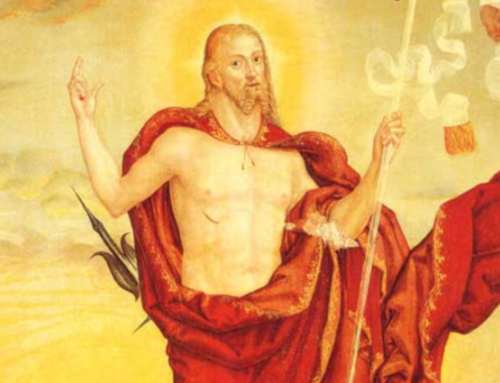 I agree completely with Bruce and Barbara that real change will need to come from communities and from talented individuals working within stable and functional communities that support them. This truth, of course, takes us all the way back to Aristotle’s Politics. “Man is, by nature, meant to live in a community.” Should he opt out, he will be a beast or god. Either way, he ceases to be human.
I agree completely with Bruce and Barbara that real change will need to come from communities and from talented individuals working within stable and functional communities that support them. This truth, of course, takes us all the way back to Aristotle’s Politics. “Man is, by nature, meant to live in a community.” Should he opt out, he will be a beast or god. Either way, he ceases to be human.
The true conservative should seek to conserve that which is most humane within us and in those who came before us.The question for us is: how does one form a community or communities in a world that moves at the speed of sound and, even more often, at light. Do we form communities around needy individuals, around educating our children, around debating conservatism on the web? And, what sustains such communities? How do we limit the bad communities while encouraging the good? Perhaps, Barbara, this gets to your point that conservatives tend to be nostalgic. I wonder, though, if it’s rather that we tend to be mythic—that is, we are storytellers. We want to place our own existences within a larger existence (that is, a community—perhaps even a community of our own selves over time, within our lifetimes, moments separated from moments, events separated from events).
Our childhoods and early adult years do seem somewhat golden. Not necessarily because they were, but because we know how they turned out and how our choices played out. We know what good decisions worked and what bad decisions didn’t. We know ourselves by reflecting on a past that has become, in our minds at least, simplified. Maybe this is the nostalgia we conservatives have—a longing for something in hindsight that seems clear?
Few of us on this journal could, however, be accused of being backward looking. While I can’t speak for Bruce, Gleaves, or John C., I can say with absolute certainly that you (Barbara), Winston, John R., John W., and I love our gadgets and our technologies. Steve Jobs holds a rather high place in each of our minds. Though, I think we each admire him for his aesthetic sense as much for his entrepreneurial drive. Probably not one of us think much of his political and religious choices. My main point being, we each love things that are here and now, and we each have a certain hope that things are getting better, especially if it has a glowing partially eaten Apple (ah, the forbidden fruit) on it.
When Tom Burns and Christopher Dawson released the first issue of ORDER in 1928, they found a large audience. “Probably we shall get no further than the paradox that we are of a revolutionary nature yet with order as our idée force. The Cherubic Doctor, Chesterton, has said somewhere ‘If the world is good we are revolutionaries, if the world is evil we must be conservatives.”
We find ourselves in the same position. Some things we desire came or flourished in the past; we want to conserve these things, if only in memory. Some things, though, we know to be conserved for self-interested and selfish reasons (human slavery, for example). Therefore, we need a measurement that transcends left and right to judge that which should be conserved and that which shouldn’t. This measurement has to be what is humane and just.
Books on topics discussed in this essay may be found in The Imaginative Conservative Bookstore. The Imaginative Conservative applies the principle of appreciation to the discussion of culture and politics—we approach dialogue with magnanimity rather than with mere civility. Will you help us remain a refreshing oasis in the increasingly contentious arena of modern discourse? Please consider donating now.







Leave A Comment